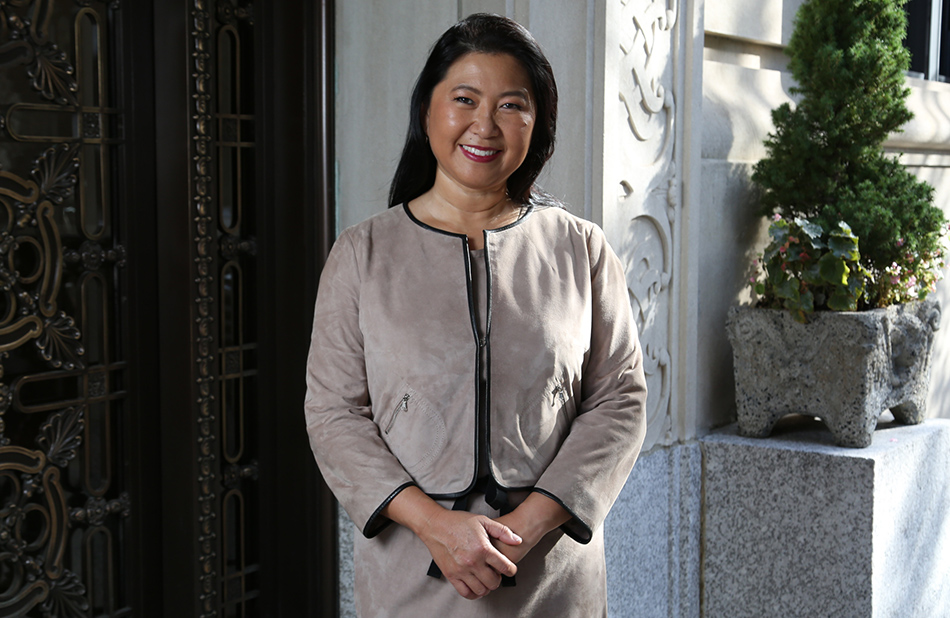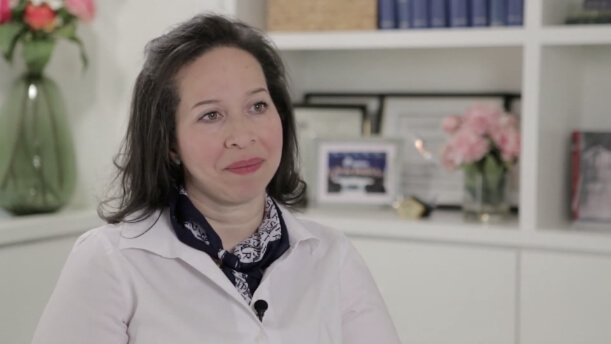
Liposuction in New York City
Introduction to Liposuction
You work hard to have the body you want, but there are times that fat can be stubborn and refuses to leave. One solution is Liposuction and so many people use this popular procedure to say goodbye to non-responsive fat. At our boutique office in New York City, Dr. Constance Chen is committed to helping her patients achieve their aesthetic goals. Dr. Chen prioritizes patient safety with her NYC liposuction patients while striving for results to give her patients the body they want. Below, we’ve included more information about the surgery, but please contact us today if you’d like to schedule a consultation.
What is Liposuction?
Liposuction is a procedure that removes excess fat via tiny incisions in order to shape and contour the body. Liposuction is most effective in patients who are already at their ideal body weight but have small pockets of fat that they cannot get rid of through diet and exercise. During liposuction, warmed tumescent fluid is infused into the patient’s fat to liquefy it and minimize bleeding. After tumescence, the liquefied fat is aspirated and suctioned out. Small 3-4 mm incisions are made for the insertion of the liposuction cannulas. The incisions are usually placed in areas where they may be camouflaged, such as in the groin crease, the belly button, or previous scars. Liposuction is performed to sculpt the body to the desired shape.
Since liposuction does not involve any skin resection, if a woman has excess skin due to overstretching from pregnancy, for example, liposuction will not solve her problem and may even make it worse. For example, if she has excess overhanging skin and stretch marks on her abdomen, liposuction may make it look like she has even more overhanging skin after the fat is suctioned out. Thus, for post-pregnancy body contouring, liposuction may be best used as an adjunct procedure. Liposuction can also be used as an adjunct procedure to finesse the result of other breast and body procedures, such as breast reduction, breast reconstruction, and abdominoplasty. Liposuction can smooth out the final contours to remove additional unwanted fat left after the primary mass of fat is cut out.
Who are the Best Candidates for Liposuction?
As a leading plastic surgery practice in New York, we have treated patients for over a decade. The best candidates for liposuction are those who meet the following criteria:
- At their ideal weight
- Healthy with no significant medical conditions
- Maintain a positive outlook
- Have specific goals for body contouring
- Nonsmoker
- Possess firm, elastic skin and good muscle tone
- Have small fat deposits that don’t respond to diet or exercise

What are the Benefits of Liposuction?
In addition to improving body contour, our NYC liposuction patients enjoy other benefits from liposuction:
- Enhancement of appearance
- Better fitting clothes
- Can treat multiple areas
- Small concealed scars
- Permanent results with weight maintenance
- Targeted body resculpting

What’s the First Step?
The first step in getting Liposuction in New York City is to contact our office to set up a personal consultation. During this appointment, you will be able to meet with Dr. Chen and ask her your questions. She will be able to assess the areas that you are looking to improve and give you her professional opinion on the best treatment plan to achieve your aesthetic goals. If you and Dr. Chen both feel that liposuction is the best solution for your needs, you may take the next step to book surgery. We will provide you with preoperative and postoperative instructions. to help you navigate your procedure.
What to Expect on the Day of Liposuction?
When you come in for your Liposuction procedure, you will be prepared for surgery by the nurse. You will meet a board-certified anesthesiologist who will administer general anesthesia. Dr. Chen will perform the liposuction through small incisions adjacent to the fatty areas being targeted. Once the procedure is complete, the incisions are closed and dressings are placed. You will also be placed into compression garments to help shape your body, and absorbent dressing will be applied to keep the incision clean and absorb any fluid drainage.
Liposuction Recovery
After liposuction, drains are not needed. The patient will need to wear a surgical compression garment to mold the tissues and squeeze out the excess fluid. Red, watery fluid may leak out of the small incisions in the first few days after liposuction. This is normal, and the patient should place plastic liners or old towels on top of her bedsheets. The dressings on the incisions remain in place for at least 48-72 hours. After the dressings are removed, the patient can shower. Most patients should take 2 weeks off of work. Patients should avoid heavy lifting for 6-8 weeks. The treated liposuction sites will be swollen and bruised initially, but some of the swelling subsides in the first couple of weeks and then settles over several months.
Why Choose Dr. Constance M. Chen for Liposuction
Dr. Constance Chen is a board-certified plastic surgeon with special expertise in using innovative, natural techniques to optimize medical and cosmetic outcomes for women. She understands that every patient has unique concerns and is known for giving every patient highly individualized attention. Dr. Chen is a member of the American Society of Plastic Surgeons.
How Much Does Liposuction Cost in NYC?
The cost of Liposuction in NYC will depend on the number of sites being treated and the extent of surgery The best way to get the most accurate cost will be to book a consultation so that a treatment plan can be developed. After a custom plan is created for you, the office staff will be able to give you an estimate of the costs and answer any questions you may have.
Schedule Your Consultation
When you are ready to get Liposuction in NYC, contact our office and schedule your one-on-one consultation with Dr. Chen. She will meet with you and help you start your journey to a healthier, leaner-looking!
REACH OUT TO USLiposuction FAQs
Is Liposuction painful?
Since you will be under general anesthesia administered by a board-certified anesthesiologist you will be comfortable during your procedure. Dr. Chen supports Enhanced Recovery After Surgery (ERAS) so she may prepare you with medication before surgery, request special types of anesthesia for you during surgery, and administer regional blocks after surgery to minimize postoperative pain and nausea. She will also prescribe postoperative medication for inflammation and pain control to make your recovery as comfortable as possible. You will experience swelling, bruising, and discomfort during the first stage of your recovery, but this will subside over time. In addition to the compression garments, ice packs are very helpful to reduce swelling and discomfort after liposuction.
How many appointments will I need?
After the initial consultation, Dr. Chen will meet with you 30 days prior to surgery, 2 weeks prior to surgery, and either just before surgery or the morning of surgery for preoperative marking. Dr. Chen will then follow up with you several times after surgery to monitor your healing. For patients who are traveling from out of town, some of these appointments may be done by telehealth.
How long until I see results?
Immediately after liposuction, you will be swollen and bruised. Much of the swelling and bruising will subside in the first 2-3 weeks, but it takes several months or even a year for all of the swelling to go down. After this period, with the proper diet and exercise, you can enjoy your results for years to come.
Can I combine liposuction with other procedures?
Yes, many NYC patients combine Liposuction with other plastic surgery procedures, such as breast reduction, a tummy tuck, or a mommy makeover.
What are the risks associated with Liposuction?
The risks that are associated with Liposuction can include, but are not limited to, the following:
- Anesthesia risks
- Bruising
- Damage to deeper structures such as nerves, blood vessels, muscles, lungs, and abdominal organs
- Deep vein thrombosis
- Cardiac and pulmonary complications
- Fluid accumulation
- Infection
- Irregular contours or asymmetries
- Irregular pigmentation
- Need for revision surgery
- Persistent swelling
- Persistent changes in skin sensation
- Poor wound healing
- Rippling or loose skin
- Unfavorable scarring


